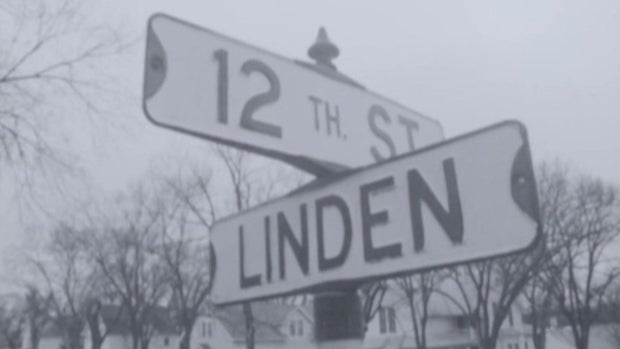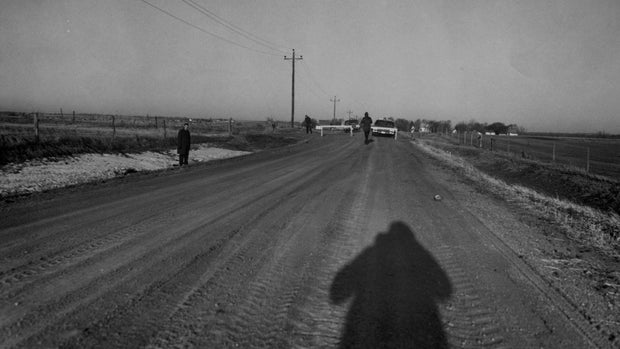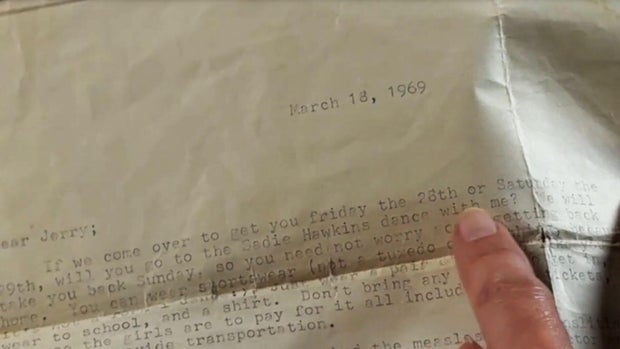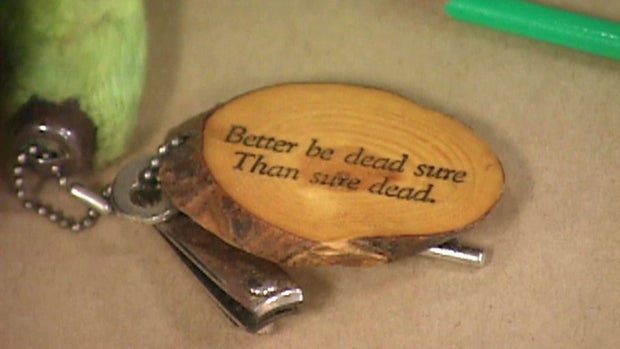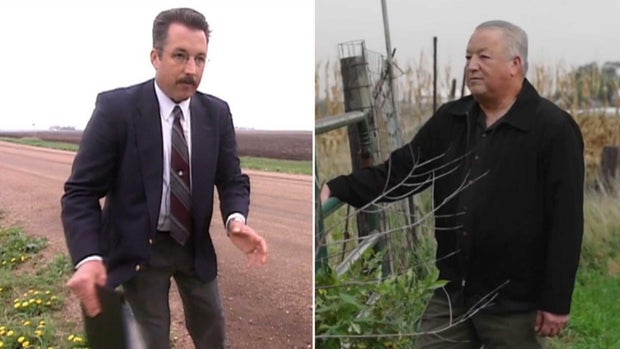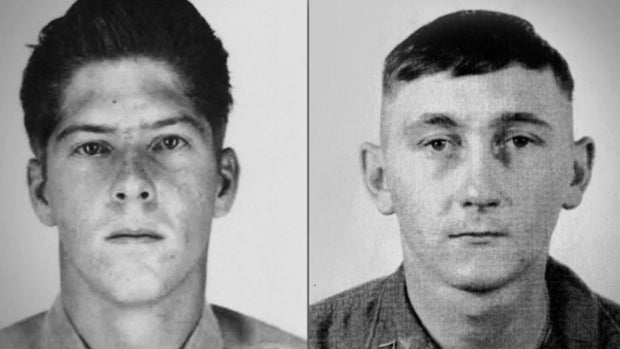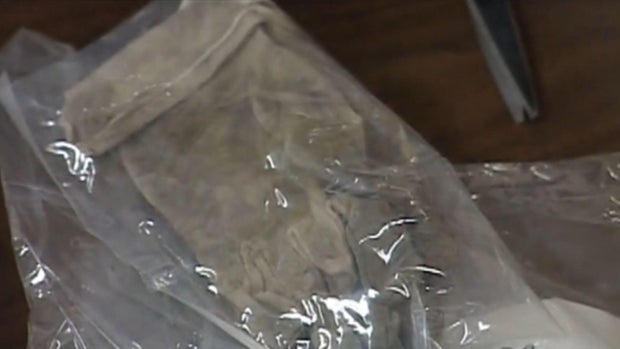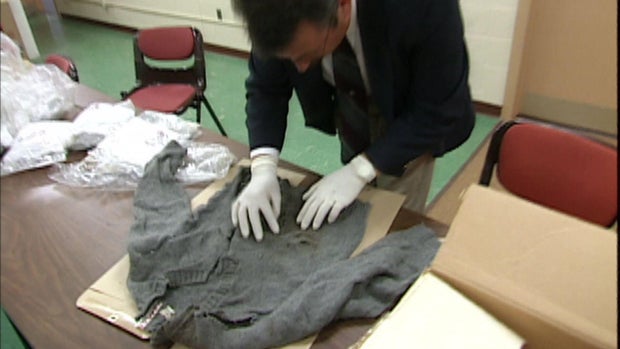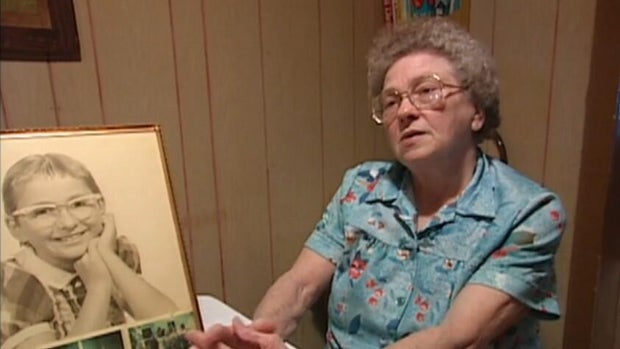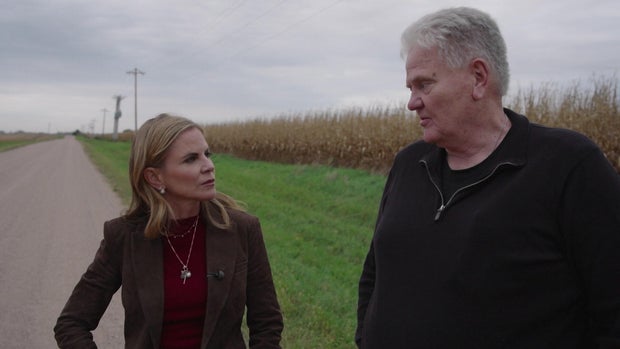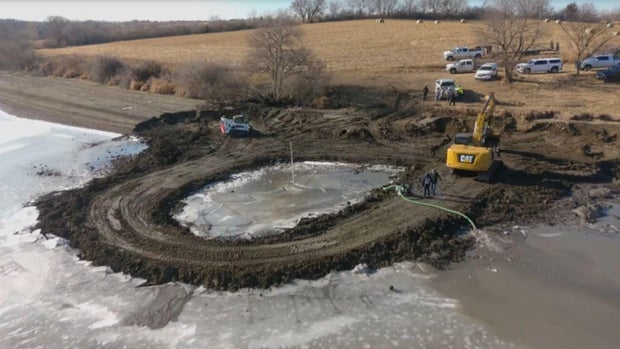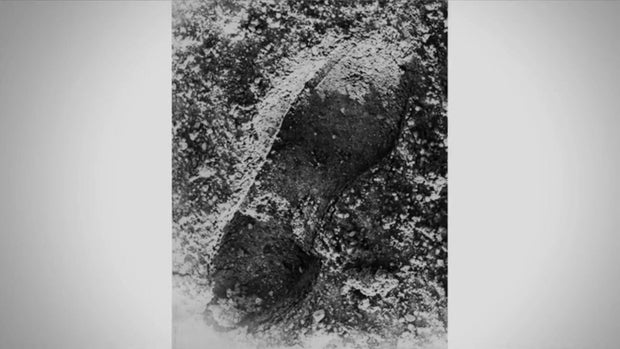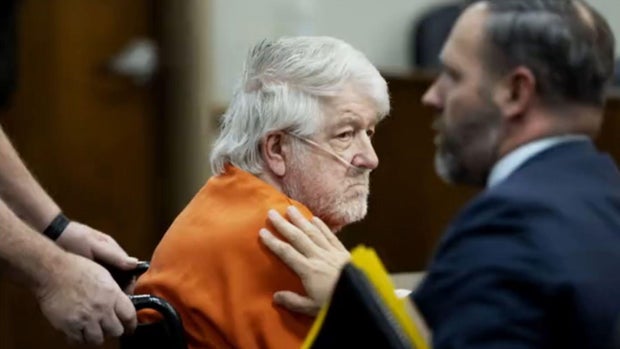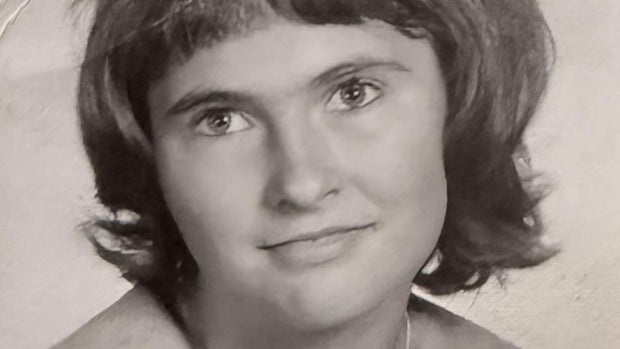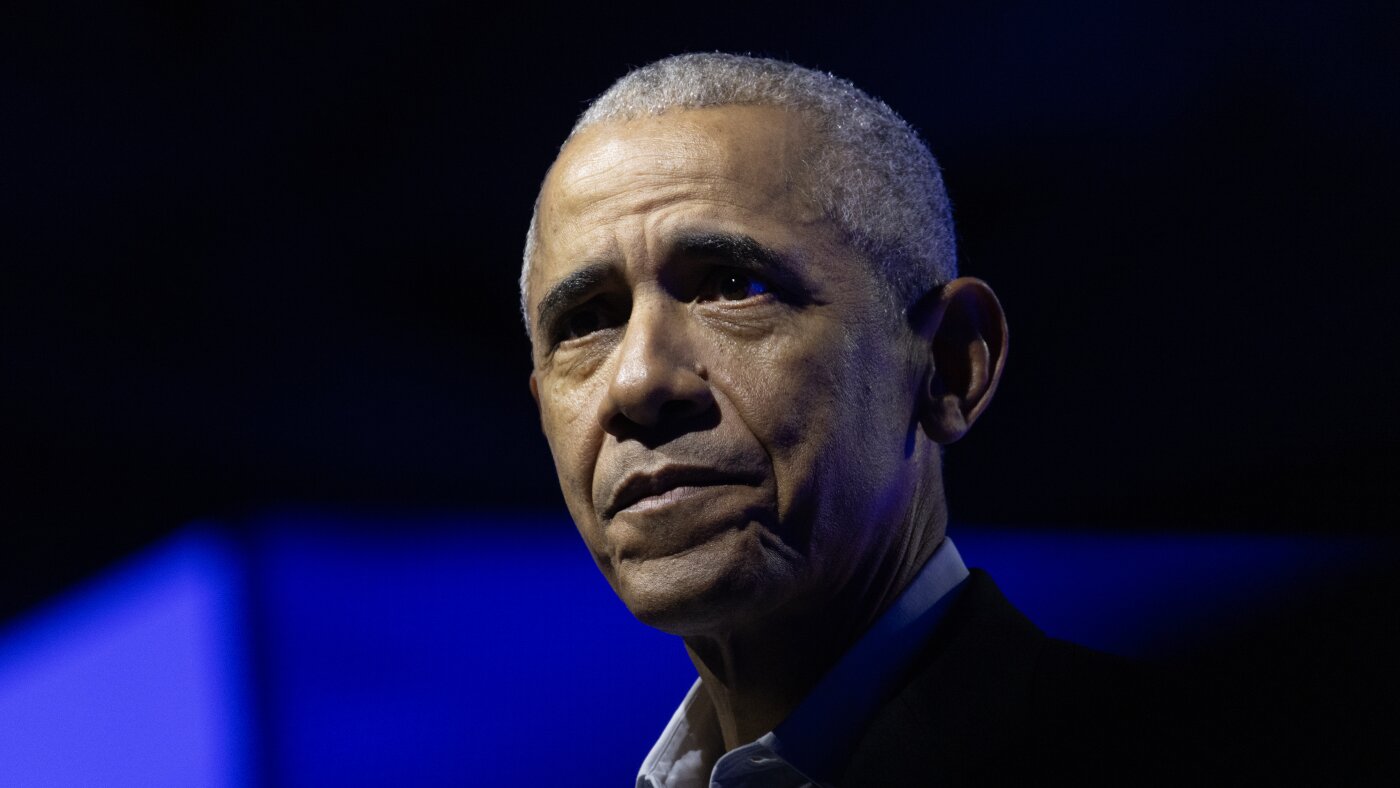Nebraska
Tad Stryker: Huskers Clowned by Minnesota

Was this a audition for the Penn State job? If so, P.J. Fleck looks like he just may be ready to be added to the Nittany Lions’ list of candidates.
That other head coach? The one largely responsible for a distracted, disinterested effort by a poorly prepared Nebraska football team? He’s still got enough problems to solve in Lincoln, and needs to stay right where he is.
If you were worried about Matt Rhule going home to Happy Valley, take heart. It’s unlikely he improved his chances for the job by taking a whipping in Minneapolis.
Displaying all-too-familiar softness in the trenches and poor tackling at the second and third levels of the defense, Nebraska lost to Minnesota 24-6 and looked increasingly inept as the second half unraveled.
They may deny it till they’re Nittany Lion blue in the face, but the Huskers looked like they were badly shaken by nationwide reporting that Rhule is a major candidate to take the place of James Franklin at Penn State.
There were several demons the Huskers had a chance to slay during a rare Friday night game in Minneapolis. They fed and nurtured those demons instead.
They had a chance to prove they can play in Minneapolis, where they haven’t won there since 2015. Instead, they threw another loss on the pile.
They could’ve poured cold water on the Surrender Whites Curse. Instead, they carefully saturated it with gasoline and lit a match. The Surrender Whites Curse is flaming hotter than ever.
In what was rightfully billed as a tough turnaround, with back-to-back road games scheduled at College Park and Minneapolis just six days apart, Nebraska looked clueless on the field. On a night where offensive guard Rocco Spindler ended up in the hospital, the Huskers are just lucky that Dylan Raiola didn’t follow him there. Raiola spent most of the night running for his life.
Nebraska lost to Minnesota despite committing no turnovers, which is typically the Huskers’ downfall. NU just got thoroughly outplayed, showing none of the “next-play” mentality that had bailed it out of tough spots in recent weeks.
Giving up nine sacks was disgrace enough, but the Huskers had fewer total yards, fewer first downs, twice as many penalties, lost the time-of-possession battle, failed to score touchdowns on both their trips to the red zone and converted a miserable 3 for 11 on third downs. They loudly proclaimed to the college football world that they don’t deserve to be rated in the top 25. There’s really not much solid evidence that the Husker coaching staff and players took this game seriously.
For the sixth time in a row, a Minnesota team with arguably less talent on the roster beat Nebraska. Minnesota won its previous four decisions by close scores. However, on this night, the Gophers clowned the Huskers, made them look foolish. If that were Curt Cignetti on the other side of the field instead of Fleck, who’s a friend of Rhule’s, he would’ve found a way to make the score more one-sided.
Rhule’s postgame assessment was blunt and to the point. “Just overall, I thought they were the more physical team tonight,” he said.
No, it was not a good night for the Nebraska coaching staff. John Butler was helpless in the second half. And has Dana Holgorsen ever looked worse trying to direct an offense? It’s tempting to blame Holgorsen for abandoning the run game (Husker running backs ran the ball just 16 times), but then again, the lack of dependable blocking tends to make you shy away from pounding the rock. When your quarterback is sacked nine times, you spend most of the night trying to pass your way out of trouble. And even so, Holgorsen/Raiola got the ball to Jacory Barney only once. One stinking time.
I had an old friend check in with me after this one ended. Glass-Is-Three-Quarters-Empty Husker Fan got in touch, although he didn’t have much to say. He seemed down. “Don’t know if I have ever seen a worse performance by an offensive line in any Nebraska game,” said my good friend. “Offensive tackles are incredibly bad. So disappointing.”
A Nebraska running game that seemed to be coming into its own, featuring Emmett Johnson, a jilted hometown boy coming back with something to prove to his friends in the stands, instead fell flat to the tune of 36 net yards rushing (although EJ did what he could, with 100 total yards on 14 carries and five receptions), while a Minnesota running game that had been on life support somehow got up out of its hospital bed and started to dance all over the Blackshirts with 186 net yards. Minnesota’s Darius Taylor, plagued by injuries much of the season, got well just in time to drop 148 yards rushing, including a touchdown, on the Big Red. His 71-yard run in the first half was the play that set Nebraska on its heels for the rest of the night.
Losing Spindler to injury and Elijah Pritchett to ejection for a targeting call certainly played a role in the defeat, but that doesn’t account for a Husker defense that wilted pitifully in the second half, giving up a 98-yard touchdown drive that put the Gophers firmly in the driver’s seat.
Meanwhile, Raiola had one of his most painful nights as a Husker. Although he was a fairly respectable 17 of 25 passing with no interceptions, only 64 of his 177 passing yards came in the second half as he was pressured all over the field. One catch-and-run by freshman Quinn Clark was responsible for 20 percent of Nebraska’s total offense output. It was a miserable offensive performance, which may turn out to be just what the doctor ordered to get Rhule’s name run out of Happy Valley on a rail.
Stay up to date on all things Huskers by bookmarking Nebraska Cornhuskers On SI, subscribing to HuskerMax on YouTube, and visiting HuskerMax.com daily.

Nebraska
Retirees punished for helping? New Nebraska bill targets surprise retirement repayments

LINCOLN, Neb. (KOLN) — Whether it’s serving as a substitute or a paraprofessional, retired teachers play a vital role in education.
But new legislation aims to fix a problem in Nebraska: retirees who help too much, too soon might be required to repay some of their retirement benefits.
Currently, retired teachers must wait 180 days before volunteering regularly, with an exception of eight days a month during that period.
Sen. Dan Lonowski of Hastings introduced the bill, which changes the waiting period to 120 days with no volunteer exceptions.
The bill has the support of the Nebraska State Education Association, or NSEA.
“We’ve heard stories from retirees that were forced to pay back tens of thousands of dollars because they didn’t even realize they had helped out too much during that 180 days,” NSEA President Tim Royers said. “So this is a nice, clean, hard break. You’ve just got to sit out on the bench for a few months, but by November, you’re able to get back and help and support your community.”
Beyond filling in the classroom, retired teachers serve another very important purpose, Royers said.
They’re coaches to newer teachers, bringing a wealth of knowledge as veteran mentors to a profession that historically experiences high rates of burnout.
Click here to subscribe to our 10/11 NOW daily digest and breaking news alerts delivered straight to your email inbox.
Copyright 2026 KOLN. All rights reserved.
Nebraska
Nebraska picks up 68-49 victory over Northwestern

Nebraska (22-3, 11-3) remained home to play Northwestern (10-16, 2-13) on Saturday for the second time this season. The Huskers picked up the win to sweep the Wildcats on the year, dominating the afternoon 68-49.
Nebraska pulled away in the second half, scoring 40 points after entering halftime up 28-27. The Huskers battled with Northwestern multiple times in the game, with the Wildcats even taking a four-point lead early in the second. But Nebraska took control of the game by scoring from beyond the arc.
The Huskers shot 11-of-25 from beyond the arc with Pryce Sandfort leading the charge. He scored a game-high 29 points by shooting 10-of-21 from the floor, 6-of-13 from 3-point range and 3-of-3 from the free throw line. Sandfort also hauled in six rebounds.
Nebraska finished 24-of-53 in total and 9-of-12 from the line. The Huskers also outrebound the Wildcats 40-24. Northwestern finished 20-of-50 and 6-of-11, respectively. The Wildcats also scored 27 points off 18 turnovers. But Northwestern hit just 3-of-15 from beyond the arc.
Sam Hoiberg scored 14 points on the afternoon, hitting 5-of-8 from the floor, 1-of-1 from three and 3-of-4 from the foul line. He secured seven rebounds and five assists. Cale Jacobsen posted 10 points for Nebraska, shooting 4-of-7 from the floor and 2-of-3 from beyond the arc. He also snatched six rebounds. Rienk Mast led the Huskers in rebounds, picking up nine.
Nebraska hits the road for its next conference game, visiting Iowa City to take on the Iowa Hawkeyes Tuesday night. Tipoff is set for 8 p.m. CT on the Big Ten Network.
Contact/Follow us @CornhuskersWire on X (formerly Twitter) and like our page on Facebook to follow ongoing coverage of Nebraska news, notes and opinions.
Nebraska
Could the puzzling case of slain Nebraska teen Mary Kay Heese be solved after 50 years?

Jennifer Joakim, Saunders County attorney, and Richard Register, deputy county attorney, worked on what is believed to be the longest unsolved cold case in Nebraska history: the 1969 murder of 17-year-old Mary Kay Heese, a high school junior.
Richard Register: Mary Kay Heese’s unsolved murder hung over this community for five decades. It needed to be resolved.
Jennifer Joakim: I look at this case as … where the community lost its innocence. Where people were told we’re not going into Wahoo. You’re not going out alone.
Richard Register: It was very well known. A murder, especially of this nature, uh, is not common for this area.
Natalie Morales (driving down a rural road with Ted Green): This right here is what Wahoo is really known for, right?
Ted Green: Oh yeah —
Natalie Morales: I mean — for cow country —
Ted Green: — it’s rural — cattle.
Natalie Morales: — corn country.
Ted Green: It hasn’t changed much.
Ted Green was the criminal investigator for the Saunders County Attorney’s office. He started working on the case in 2015.
Ted Green (in car with Morales): So this was the high school here.
Natalie Morales: So on that day she had just finished her —
Ted Green: Walked home and started heading north here on Linden Street.
Murdered teen was “full of life”
Memories of Mary Kay Heese’s murder loom large in this small town. Black and white footage was filmed by a local television station shortly after the murder. Much of Wahoo looks like it did on March 25,1969, when Mary Kay never made it home after school.
Ted Green: So the last place that she was seen was here on the corner …
That evening, Mary Kay’s parents reported her missing, and the community came out in force to search for her.
Ted Green: So they had Boy Scouts, Cub Scouts, church groups, school groups … and the Wahoo Police Department, Sheriff’s office … all searching for her.
Nothing was found until close to midnight, when a farmer spotted Mary Kay’s school books and purse stacked neatly on a road near a field.
Jennifer Joakim: Inside the books … was her name and so he brought the books into Wahoo and ran into … the police that were searching for her. … They all went back to where the books were found … and they found her body, lying in a ditch … on the side of the road.
Not far from Mary Kay’s bloodied body, investigators discovered her shoes in the road, tire tracks from a car, and shoeprints — potentially from the killer.
Natalie Morales: And how had she died?
Richard Register: Well, in a horrible way, she was chased down. The — the footprints, which were preserved by the ground freezing, showed that she got out of the vehicle and she ran … And you could tell by the strides that she was really trying to escape. … And then near where her body is found … there’s a pool of blood … she’s laying there discarded like trash.
Investigators photographed the scene, measured and made a cast of that shoeprint, and sent Mary Kay’s body for an autopsy. It was determined that Mary Kay had been beaten and was stabbed to death, leaving 14 wounds. No knife was found at the scene.
Ted Green: She has a pretty good mark on her jaw where she was punched. And … the stab wounds come after that.
Natalie Morales: Stabbing somebody 14 times though. What did that tell you about the nature of the crime?
Ted Green: Rage. Rage.
Natalie Morales: Was she sexually assaulted?
Ted Green: No. No. … but I believe she understood that’s probably where it was gonna head.
The investigation was initially handled by various law enforcement departments. Mary Kay’s clothing was sent to the FBI to J. Edgar Hoover’s attention — before the days of DNA testing, to see if anything could be learned.
Investigators questioned people around town about the day of the murder. A witness reported seeing Mary Kay that day at around 5 p.m., getting into a car that had two men, at that street corner.
Natalie Morales: In those early days and weeks, did you think, oh, they’re gonna — they’re gonna find whoever did this.
Kathy Tull: Oh yeah. Yeah.
Mark Miller: Oh, yeah.
Mark Miller and Kathy Tull are Mary Kay’s cousins.
Natalie Morales: These are some of Mary Kay’s personal belongings right …
Kathy Tull: Mm-hmm.
Kathy Tull: … this is her 4H –
Natalie Morales: was she proud of what she did at the 4-H?
Kathy Tull: Oh yeah — look at how tiny she was. (holds up T-shirt)
Natalie Morales: Yeah.
Kathy was 9, and Mark was 8, when they learned Mary Kay had been murdered.
Mark Miller: She’s the oldest of us cousins. So, she always looked out for all of us.
Kathy Tull: She was a 17-year-old girl full of life.
Kathy recalls being picked up early from school the day Mary Kay’s body was found.
Kathy Tull: And they told us we had to come to Wahoo.
Kathy’s family drove to her cousin’s home. When they got there, Kathy saw and heard Mary Kay’s mom, Dorothy.
Kathy Tull: When we went in, it was just — you could hear her wailing. It’s the kind of pain you feel across the room.
Natalie Morales: And at the time, did they tell you how she was found or was that too much to tell … the cousins, the kids?
Kathy Tull: I think we heard it.
Mark Miller: … when they told us, then it was on the news.
The family, and the community, could not understand why Mary Kay had been targeted. There were no answers, just fear.
Kathy Tull: And I remember … thinking, “I’m scared.”
Mark Miller: Everything changed. What our parents allowed us to go do.
Natalie Morales: You didn’t have the freedoms that you had before …
Mark Miller: We lost so many different things because of it … our parents wanting to overprotect us.
But being overprotective did not ensure safety. Mary Kay’s parents, especially her father, had always been very watchful and careful with their daughter.
Ted Green: She had a very strict father and … she was shy. … She very much wanted to fit in. … And there was a group of girls that would … put makeup on her at the beginning of the day and change her clothes out. So she would fit in socially. And then at the end of the school, she’d change back. She wanted to be a part of the crowd.
Mary Kay was trying to participate in school activities — practicing baton twirling, hoping to be a majorette. Part of fitting in for Mary Kay also involved trying to get a date for an upcoming school dance. Mary Kay had even written a letter to another cousin asking him to be her date.
Natalie Morales (reading letter): “Will you go to the Sadie Hawkins dance with me …”
Natalie Morales: … just wanted a date –
Kathy Tull: Mm-hmm.
Natalie Morales: — and so she would take her cousin …
Natalie Morales: … this was March 18th, 1969. … So just a week before … she died.
Investigators thought that perhaps the pressure to find a date and fit in led the usually shy Mary Kay to get into that car with the men at that street corner.
Kathy Tull: I think she was so naive, she had no clue that something bad could happen to her.
Richard Register: She just wanted to get a boy to go to the dance with her. And unfortunately, the dance she went to was her death.
Why was Mary Kay Keese killed?
Ted Green, formerly the investigator for the Saunders County Attorney’s Office, believes the two men who picked up 17-year-old Mary Kay Heese on March 25, 1969, were driving to an area known locally as The Grove.
Ted Green: Natural parking and party spot.
Natalie Morales: So kids coming down this way, they were — two things in mind, either partying or hooking up?
Ted Green: Or hooking up. Those were the two things on everybody’s mind.
Green’s theory of the crime is that when Mary Kay realized the men’s intentions, she fled the car, and one of the men ran after her, eventually stabbing her to death. But people who knew Mary Kay wondered why she got in the car the two men.
Ted Green: She wouldn’t get into a car with somebody that she didn’t know. … She knew these guys.
Working that theory, investigators in 1969 questioned males in town, especially ones who could have crossed paths with Mary Kay. They used what was then a brand-new crime solving tool: polygraphs.
Richard Register: They polygraphed virtually the entire male population of both the schools. I mean can, can you imagine the uproar would happen today? … And they were looking for that as their silver bullet.
One of the people polygraphed and questioned a few days after the murder was Joseph Ambroz, 22 years old at the time. Ambroz had been seen weeks before the murder talking to Mary Kay around town. They both frequented The Wigwam Café, a restaurant which still stands today. Ambroz stood out, as he was new to town. Investigators learned he was on parole after having been convicted of forgery and escaping from custody.
Richard Register: He wrote a $10 bad check, with his buddy up in … Wayne, Nebraska. They get stopped for that and they escape this little county jail up there. And … they catch up in California and bring him all the way back.
Ambroz served about three years and then moved to Wahoo.
Ted Green: And he’s out on parole. He’s got a job. He’s working at a packing plant.
Natalie Morales: So, a slaughterhouse.
Ted Green: And, yeah. Slaughterhouse. And — she knew him.
Authorities say they learned that Ambroz was known to mingle with high school girls and had a reputation for having a temper. He also drove the type of car, similar to this one, that someone said they saw near the crime scene.
Ted Green: A local resident … had seen two cars leave that night. One car was a white over red, ’56 Chevy … The second car … was a white over blue ’56 Chevy with two dark haired males in it, driving at a high rate of speed. Ambroz drove that white over blue … He’s a person of interest.
Ambroz denied any involvement in the murder. And his polygraph seemed to support that. Ambroz said he had an alibi: that the night of murder, he was hanging out at various locations with his friend Wayne Greaser, who was also questioned and polygraphed.
Richard Register: Wayne Greaser was … just that wannabe kid who was just following around Ambroz. … And so he’s — he says he’s with him.
But while being questioned, Ambroz did speak about things, says Green, that got him in trouble with the law, and he was immediately sent to jail.
Ted Green: He blows his parole right in the pre-polygraph interview. … He violates it, says I’m buying booze for minors. I’m having sex with minors … so he’s booked, parole violation.
But not for Mary Kay’s murder.
Natalie Morales: Why did this case not move along further at the time?
Jennifer Joakim: That’s — that’s a very good question.
Follow up in the initial investigation, prosecutors say, seemed to be lacking, with inexperience a factor. Cars were not checked for blood, and suspects’ shoe sizes were not compared to shoeprints found at the scene.
Richard Register: This was the beginning of the State Patrol. Because before that they just gave tickets for speeding. … And so these people were thrown into this new investigative unit.
Jennifer Joakim: There were other agencies involved. … And it didn’t seem like there was really a lead … investigator.
Richard Register: And they were just relying on those polygraphs.
For decades, the case sat cold.
Sgt. Bob Frank (1999): After seeing the pictures and looking at the case, you can visualize it, I mean everything is the same after 30 years, it’s all the same, nothing has changed.
Then, 30 years later, in 1999, with the creation of the Nebraska State Patrol Cold Case Unit, Mary Kay’s murder was getting attention again. “48 Hours” cameras followed Sgt. Bob Frank as he worked the case.
Sgt. Bob Frank (1999 | referencing a 1969 crime scene photo while at the crime scene): And her body was found right in here and that’s where we’re at right there …
And we spoke with Frank again in 2025, now retired from the State Patrol.
Bob Frank (2025): One thing about doing cold cases you find is that stories grow, stories change. … And so, you know, trying to separate truth from fiction is sometimes difficult.
To try to get to the truth, Frank, in 1999, scoured the old case reports. He noticed that Joseph Ambroz and Wayne Greaser, the men who were each other’s alibis, kept coming up in witness statements.
Bob Frank: And I started talking to other people who … had been told by these two individuals that they had done this homicide.
Greaser had died by suicide in 1977. Ambroz was long out of jail, having served a year-and-a-half for that parole violation after Mary Kay’s murder. He had moved around and worked as a truck driver. Bob Frank knew at some point he would want to talk to Ambroz but first wanted to take a new look at the old evidence.
Natalie Morales: In ’99 now, are you hoping you’re gonna get some sort of DNA?
Bob Frank: Something.
Testing the crime scene evidence
By 1999, when Sgt. Bob Frank led the Nebraska State Patrol’s Cold Case Unit, advances had been made in forensic science that were not available in 1969 when Mary Kay Heese was murdered. “48 Hours” cameras filmed Frank going through Mary Kay’s belongings, as he looked for DNA and fingerprints. Among the items tested were Mary Kay’s schoolbooks, found stacked at the scene.
Bob Frank (1999): Uh, we’re hoping for — for prints to come off. … it’s been 30 years.
The theory was that Mary Kay left the books and her purse in the car. The killer noticed the items, and not wanting to be linked to her belongings, dumped them.
Bob Frank (2025): So, we know it was probably the suspect that — that put those books on the road. What we were looking for there was any type of fingerprint evidence.
A fingerprint examiner worked to find and lift prints off the schoolbooks, including one titled, “Building a Successful Marriage.”
Natalie Morales: Were there any fingerprints that came forward?
Bob Frank: No. No.
Bob Frank (1999): This what we really had them concentrate on were — were these gloves. …
Man (1999): — and she was wearing these at the time, wasn’t she?
Bob Frank: Yes … We were looking for, um, — somebody else’s blood on, on those gloves.
They also tested Mary Kay’s clothing.
Bob Frank (1999): When I see this, it just motivates me more. I mean, it’s — something you wanna solve. It’s something you want — you want to get closure on. I tell you the truth when I put this out and laid it out, the first thing I thought of was Mrs. Heese.
Frank spoke several times with Mary Kay’s mother, Dorothy, over the course of his investigation.
Dorothy Heese (1999, looking at photos): That’s when she started the high school.
“48 Hours” spoke with her as well, in 1999.
Dorothy Heese (1999): I don’t think it’ll be solved. I really don’t. It’s gone all these many years and I just, I’ve just given up hope.
Hope would be diminished again when the forensic testing led nowhere. Still, Joseph Ambroz and Wayne Greaser remained at the top of Frank’s suspect list.
In May 1999, Frank decided to question people who knew Ambroz and Greaser around the time of the murder and had been named in prior police reports.
Bob Frank (1999): That’s why I want two guys in there so one guy can really watch how these guys are reacting to the questions being asked of them.
The thought was the passage of time might make someone more forthcoming. And the investigators took several steps to try to help that along.
Bob Frank: We created an atmosphere to where it appeared we were a full-fledged task force looking at this case.
In fact, there was no designated “Heese task force,” nor was the case “getting hot,” as a sign on the door implied. It was just one of the measures taken by Frank and his team as they tried to see if anyone would give new information.
Jay Petersen (1999): I wrote their names down on the board and — and some numbers behind those names, which don’t really have any relevancy either.
Investigator Jay Petersen.
Jay Petersen (1999): But it’s just gonna get them to thinking that we know a heck of a lot more about them than perhaps we actually do.
They also tried to make the setting a bit uncomfortable for those being interviewed.
INVESTIGATOR (1999): Did you grease the table down too?
JAY PETERSEN: Yeah.
Jay Petersen (1999): What we did was we took a bottle of furniture polish. We waxed the table, we waxed these chairs. … So, when they sit down, they’re not gonna be able to get into a comfort zone. … So, keep ’em on edge a little bit and hopefully that’ll uh, get them talking a little bit too.
Bob Frank: We put electronic devices in to — to record in the room. We let these people know when we brought them in that they were gonna be … monitored constantly.
But despite all those efforts, nothing usable was learned.
Bob Frank (2025): We had people telling us that … Wayne Greaser told us this … Joe Ambroz told us this … but it was all hearsay evidence, you know? We didn’t have that witness that … was there or you know knew the facts directly.
So Frank decided it was time to interview Joseph Ambroz himself.
Bob Frank (1999): We will just go see what we can get by knocking on the door. … Let’s do it.
In September 1999, Frank traveled to Orange Park, Florida, where Ambroz was living. Working with local law enforcement, Frank went to Ambroz’s home where he answered the door and willingly went to be questioned at the Florida Department of Law Enforcement.
BOB FRANK (1999): Recall for me what — what you did that night? I mean, if — you know, you’ve been questioned about it before.
JOSEPH AMBROZ: Yeah. Uh –
BOB FRANK: You know, tell me what — what you did.
Ambroz said, on the day of the murder, he got off work around 5:30, went home and then went to a club until closing time. Unlike his previous interview, where his now deceased friend Wayne Greaser was his alibi, he did not mention being with Greaser.
BOB FRANK (1999): But you had said in interview reports, and I have those interview reports, that you were with Wayne.
JOSEPH AMBROZ: OK. I — it’s possible. I’ll tell you, it’s been a long — it’s possible I was with him.
Frank also asked many questions about Ambroz’s job at a slaughterhouse.
JOSEPH AMBROZ (1999): Uh, I worked on the kill floor.
BOB FRANK: Kill floor?
JOSEPH AMBROZ: Yeah.
Since Mary Kay was stabbed to death, Ambroz was asked about his access to knives.
BOB FRANK (1999): Was there a special type of instrument you had to use for that? Or was it just a regular knife?
JOSEPH AMBROZ: Uh, no. I had, uh, I think like three different knives but …
Ambroz was adamant he had nothing to do with Mary Kay’s murder, even when Frank implied they found someone’s DNA at the scene.
BOB FRANK (1999): We have a wonderful thing called DNA —
JOSEPH AMBROZ: Right.
BOB FRANK: And we’re gonna be able to show who she struggled with.
JOSEPH AMBROZ: Fine.
BOB FRANK: … Um, again, you know, we have all this little bits of information here and there that fit together that you were there. Not necessarily that you did it, but that you were there when it happened.
JOSEPH AMBROZ: Well that – that — that’s yet to be proven. I mean, I wasn’t there. Like I said, I had nothing to do with it. And, uh, you’re — you’re free to take blood. Anything you want.
Despite Ambroz’s cooperation, Frank found several things suspicious – like Ambroz’s explanation for giving different versions of where he was at the time of the murder.
JOSEPH AMBROZ (1999): I don’t remember everything.
BOB FRANK: … The reports here indicate a size 9 1/2 shoe at the scene.
And there was that shoeprint found at the scene, which was the same size that Ambroz wears.
BOB FRANK (1999): You got a 9 1/2 shoe. Again, another coincidence.
JOSEPH AMBROZ: Yeah.
Frank also asked Ambroz about a report from 1972, before Wayne Greaser died, in which a friend of Greaser informed authorities Greaser had confessed to him that he and Ambroz drove Mary Kay to the field, and that it was Ambroz who killed her. When Frank brought it up, Ambroz got agitated.
JOSEPH AMBROZ (1999): I had nothing to do with it. I don’t know what Greaser was saying. And that’s all I got to say.
After the interview, Ambroz gave his blood for DNA testing and submitted to another polygraph. Nothing incriminating was found at his house, and his DNA did not match any found on Mary Kay’s items.
Bob Frank: We presented what we had to the — to the county attorney at the time and he just felt there was not enough to even take it forward.
In 2000, Frank stopped working the case, but held out hope that one day, something would be found.
Bob Frank: We needed something … to, to drive this case forward.
Facebook post leads to new tip in 2019
What exactly happened in that field in 1969 was still a mystery when Ted Green, in 2015, then the Investigator for the Saunders County Attorney’s Office, started looking into Mary Kay Heese’s murder.
Ted Green: It was putting this puzzle back together.
He had collected reports from all the different agencies that worked the case over the years. He found memos and statements that had never been filed.
Ted Green: Then I started going through the list of names and all those volumes and reinterviewing and so … I was able to start tracking down individuals.
Green says one of those people told him that Ambroz had seen Mary Kay not just at that café they frequented, but also around town, and that Ambroz told him he wanted to have sex with Mary Kay.
Ted Green: And he says, well, Mary Kay was up in her driveway twirling her baton … and he had made the comment that, yeah, the suspect told me, he wanted to do her.
Green, like Frank, focused his investigation on Joseph Ambroz. Green says another person told him he had seen Ambroz and Wayne Greaser arguing that night.
Ted Green: They got into a fight that very night about some girl and … this guy is coming forward and saying this fight occurred and nobody paid attention to him.
Green also reinterviewed a co-worker of Ambroz —who said Ambroz told him after the murder that, “I can do six months, but I can’t do life.” For Green, this was Ambroz’s motive. Green theorized that Ambroz could deal with serving six months for a parole violation, but not more for attempting to sexually assault Mary Kay.
Ted Green: He knows he’s going back … it’s not a place he wants to go.
Natalie Morales: So you believe he killed her because he was trying to make sure –
Ted Green: He was going to, yeah, she –
Natalie Morales: She didn’t report him.
Ted Green: Yeah.
Green was frustrated with the initial investigation’s lack of follow-up. Especially disturbing to him, was that Joseph Ambroz’s car was long gone and had never been examined.
Ted Green: Why wasn’t this in those reports? These were basic questions I was asking.
While Green worked the case, this man, Josh Eberhardt, a friend of Kathy Tull — Mary Kay’s cousin — wanted to bring attention to the decades old murder that continued to haunt the family.
Josh Eberhardt: The way that I could feel their pain when I spoke with them, I couldn’t let it go … I knew I wanted to help them somehow.
That help came in 2019, when Eberhardt, with the assistance of Kathy, set up a Facebook page tipline.
Josh Eberhardt: And I started writing the posts for this page, and I was trying to pull at the heartstrings of the community
Josh Eberhardt (reading post): Dear Mary Kay … Fifty years have come and gone since someone took you from us all. … I sit here at my computer every day, working to find justice for you. (cries)
Eberhardt hoped the posts might jog people’s memories. Tips came in that went nowhere. But then —
Josh Eberhardt: Somebody came forward … with a really big tip.
The tip involved a reservoir not far from the murder scene. The person had heard stories about men taking apart a car that looked like the one Jospeh Ambroz drove and pushing the car into the water shortly after Mary Kay’s murder.
Josh Eberhardt: We heard the words, white over blue, ’50s Chevy … So we knew it was important enough to pass to Ted, and he took it from there.
Ted Green also thought it was important. He always wondered what happened to the car witnesses reported seeing Mary Kay get into. A car he believed belonged to Joseph Ambroz.
Natalie Morales: You think it’s — the Chevy that’s in that lake?
Ted Green: Yeah … They got rid of the car.
Natalie Morales: There was blood on it. It was a murder scene.
Ted Green: It was a murder scene. I think the murder weapon is there also.
So, Green tried to determine what was at the bottom of that reservoir. It was a process, seen here, that went on for about five years, including having a portion dredged.
Ted Green: And we started coming up with bits and pieces of weird steel.
But he needed to come up with more.
Then Green saw a YouTube video from an underwater search and recovery dive team, called Adventures with Purpose. The organization is primarily focused on searching underwater for missing persons.
Ted Green: I called ’em up and said … this is an active, ongoing investigation. We don’t have a body in there. I’m looking for evidence. And they agreed to do it.
Ted Green: We pulled up more and more metal. We also … pulled up fiber … consistent with the color of the interior of the car we’re looking for.
Still though, they could not prove the metal and fiber were from a car. To determine anything more, the reservoir would need to be drained — which was not feasible.
If the reservoir couldn’t provide more clues, Green and the county attorney thought perhaps Mary Kay herself could. In 2024, the decision was made to have her body exhumed and perform another autopsy.
Jennifer Joakim: The first autopsy was not a quality autopsy or at least by today’s standards. … Obviously, it’s science, things evolve.
But first, the family had to consent. Green and Kathy Tull had been in close contact through the course of his investigation. Kathy was always pushing to learn more, so she gave her permission to have Mary Kay’s body exhumed.
Kathy Tull: It was — it was hard. I, uh — anything that maybe would get the answers we were looking for, but it was a hard choice.
But what kind of answers could be found from a body that had been buried for more than 50 years?
Ted Green: We didn’t know what we were gonna find.
What clues could Mary Kay Heese provide?
Mary Kay had been buried for 55 years when her casket was lifted out of the ground to perform another autopsy. Remarkably, say prosecutors, her body was well-preserved, allowing a pathologist to learn more about her knife wounds.
Jennifer Joakim: The second autopsy was extremely valuable. It added clarity to the … manner of killing.
According to investigators, the manner in which Mary Kay was stabbed was consistent with how slaughterhouse workers are taught to kill animals.
Richard Register: The angle, exactly how her body was showed in the autopsy, is exactly how they were told to do it.
For Ted Green, it was another piece of the puzzle tying Joseph Ambroz, who had worked on the kill floor of a slaughterhouse, to Mary Kay’s murder. There was also that shoeprint at the murder scene — a size 9 1/2.
Ted Green: And he wore a 9 1/2 shoe. And that’s the size of the shoe that was there.
But it was more than just the size. Green says it was also the pattern of the print. It matched a prison-issued shoe that Ambroz, on parole at the time of Mary Kay’s murder, could have been wearing.
Ted Green: So these little consistencies are starting to add up.
Natalie Morales: At what point though … do you feel you have enough … that you can then go to the county attorney’s office and say, I think I’ve got a pretty good case here?
Ted Green: It was his interview.
In 2021, Green interviewed Ambroz, traveling to Ohio where he was living. According to Green, people told him they had seen blood on Ambroz’s car around the time of the murder. Green says when he asked Ambroz about this, he admitted there was blood on his car because he ran over a deer or rabbit.
Ted Green: He said that blood is on the left rear fender.
Natalie Morales: The back — the back fender.
Ted Green: You don’t hit a deer or rabbit on the left rear fender and put blood on that. And he admitted the blood was there the night of the homicide.
Green believed Ambroz pinned Mary Kay on the car trunk, and the blood was hers from those 14 stab wounds.
In 2023, Green presented his investigation’s findings to the county attorney: the witness statements, the shoeprint evidence, Ambroz’s interview. Prosecutors knew it would be a challenging case. The murder weapon was never found, nor was there DNA evidence connecting Ambroz to the killing. But they also knew time was running out.
Jennifer Joakim: We were getting to a point that … 55, 56 years ago, this occurred, so we’re starting to lose witnesses. … So the decision was made to take it before the grand jury.
The grand jury quickly indicted Joseph Ambroz for the first-degree murder of Mary Kay Heese. The then-77-year-old was arrested on Nov. 18, 2024, in Oklahoma, where he was living. Ambroz was then extradited to Nebraska.
Mark Miller: Thrilled to death.
Kathy Tull: I was thrilled.
Mark Miller: Thrilled to death that finally, finally … Mary Kay will have justice.
For Mary Kay’s family, the arrest was gratifying, especially for Kathy. She had promised Mary Kay’s mother, Dorothy, who died in 2007, that she would fight for justice and not forget Mary Kay.
Kathy Tull: This is Aunt Dorothy asking for us to continue to search for whatever happened to Mary Kay …
Kathy Tull: I didn’t want to let her down …
Kathy Tull: I told her that I would not stop, that I would continue.
Kathy and Mark were preparing themselves to finally have some answers to 56 years of questions about what happened to Mary Kay. There were pre-trial hearings where Ambroz appeared frail and on oxygen.
Months passed, and then, in July 2025, Kathy and Mark got news they were not expecting. A plea deal had been reached — not for first degree murder as charged — but for conspiracy to commit first-degree murder. As part of the deal, Ambroz pleaded no contest, which meant he did not have to give any details about the murder.
Mark Miller: The family never got the chance to say no.
Kathy and Mark say they weren’t consulted about the deal, which also named the deceased Wayne Greaser as the other person conspiring to kill Mary Kay. It was a blow to Kathy and Mark — and to Ted Green.
Ted Green: There’s no justice for Mary Kay, there’s no justice for the family.
Natalie Morales: And no answer.
Ted Green: And no answer.
In an email to “48 Hours,” Joseph Ambroz’s attorney stated that, “Mr. Ambroz maintains his innocence … Due to Mr. Ambroz’ age he states he took the plea bargain due to his health issues … since he may not have lived until trial to try to clear his name.”
Ted Green: He gets off — I didn’t do it, really? … I’m sorry, if you’re gonna fold like that, I laid my keys on the table and walked out two minutes after he pled. … I retired right then and there.
Jennifer Joakim: I understand with some folks the plea deal wasn’t particularly appealing.
County attorney Jennifer Joakim knew there would be a backlash for accepting the plea deal. But she also felt, as they proceeded to trial, the case was only getting weaker.
Jennifer Joakim: You know, you have to look at the odds of even getting to trial.
There were chain of custody issues from the evidence going through so many hands over the years. And with some witnesses dead, testimony could be deemed inadmissible. It was leaving them uncertain the case could be proven beyond a reasonable doubt
Jennifer Joakim: We had to analyze the case and the evidence. … It was important to get the conviction.
But since Mary Kay’s murder occurred in 1969, sentencing guidelines from then would have to be used. A conviction of conspiracy to murder in 1969 carried only two years of prison time.
Jennifer Joakim: We’re bound to use those statutes as they existed at that time.
Kathy Tull: Oh, I’m angry. I’m plain angry.
On Aug. 27, 2025, just before formal sentencing was to occur, “48 Hours” spoke with Kathy and Mark. They already knew the maximum sentence that could be imposed was two years.
Mark Miller: We all know this isn’t justice.
Kathy Tull: His thing was he didn’t want to die in jail. He didn’t want to die in prison. Mary Kay didn’t want to die that day either.
At sentencing, Kathy and Mark addressed the court.
MARK MILLER (in court): I remember Mary Kay Heese as a person who would never hurt anyone.
Joseph Ambroz chose to say nothing.
JUDGE MARROQUIN (in court): Mr. Ambroz, is there anything you wish to say before a sentence is imposed?
JOSEPH AMBROZ: No.
JUDGE MARROQUIN: The maximum penalty, under the law, as it existed in 1969, and which is applicable today in the matter, is two years of imprisonment.
Due to Nebraska’s Good Time sentencing reduction law, Joseph Ambroz’s sentence was cut in half. With time served, he was released on Nov. 15, 2025.
Mark Miller: He got all these years to live, and Mary Kay never had the chance to live.
For Mary Kay Heese’s family, the quest for justice, after more than 50 years, remains elusive.
Kathy Tull: She didn’t deserve this at all. She was a 17-year-old girl full of life.
Produced by Ruth Chenetz. Michael Loftus is the field producer. Richard Barber and Michael Vele are the editors. Anthony Batson is the senior broadcast producer. Nancy Kramer is the executive story editor. Judy Tygard is the executive producer.
-

 Alabama1 week ago
Alabama1 week agoGeneva’s Kiera Howell, 16, auditions for ‘American Idol’ season 24
-

 Culture1 week ago
Culture1 week agoVideo: Farewell, Pocket Books
-

 Illinois7 days ago
Illinois7 days ago2026 IHSA Illinois Wrestling State Finals Schedule And Brackets – FloWrestling
-

 Technology1 week ago
Technology1 week agoApple might let you use ChatGPT from CarPlay
-

 Politics1 week ago
Politics1 week agoHegseth says US strikes force some cartel leaders to halt drug operations
-

 World1 week ago
World1 week ago‘Regime change in Iran should come from within,’ former Israel PM says
-

 Movie Reviews1 week ago
Movie Reviews1 week agoWith Love Movie Review: A romcom with likeable leads and plenty of charm
-
News1 week ago
Hate them or not, Patriots fans want the glory back in Super Bowl LX









